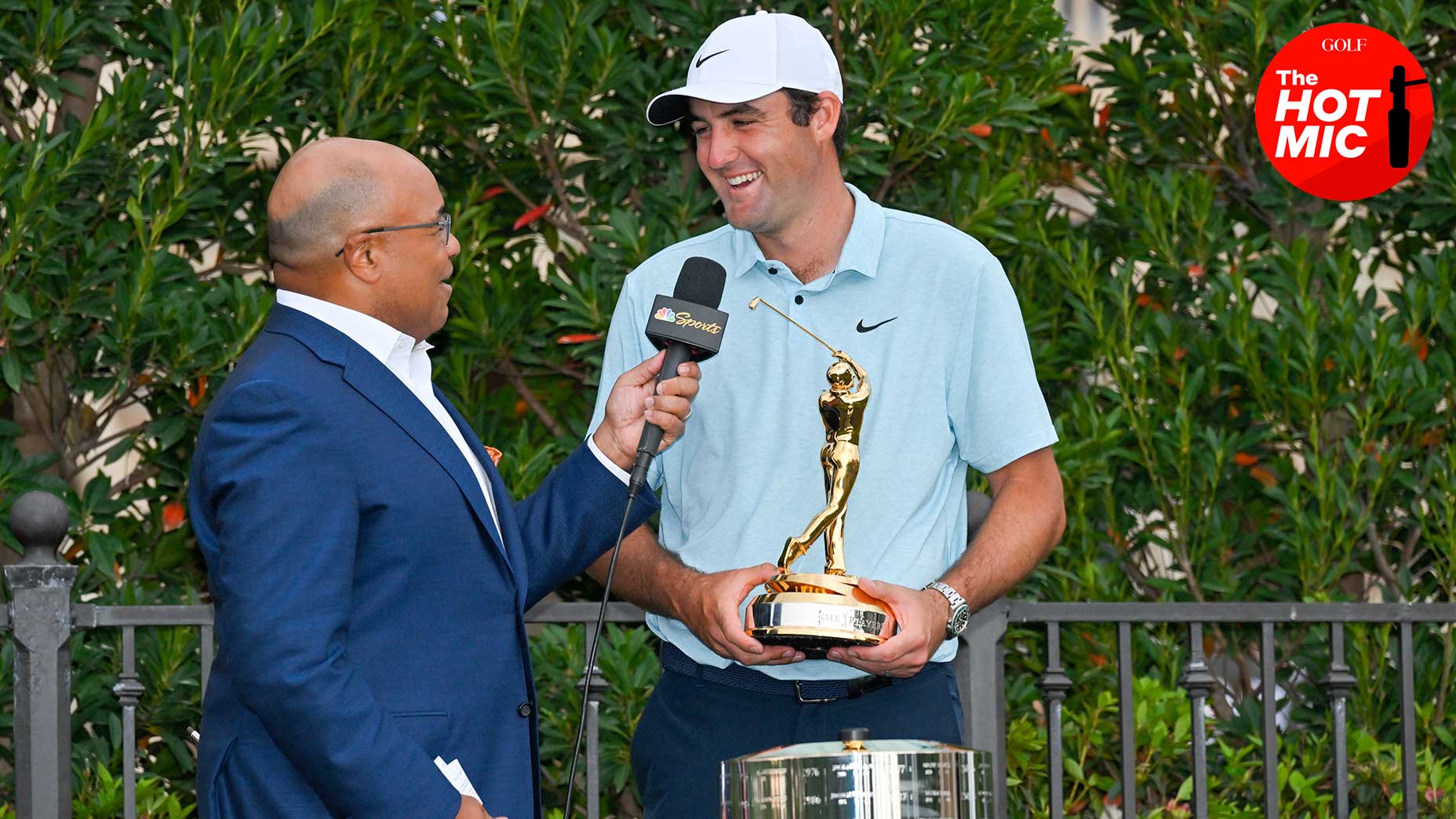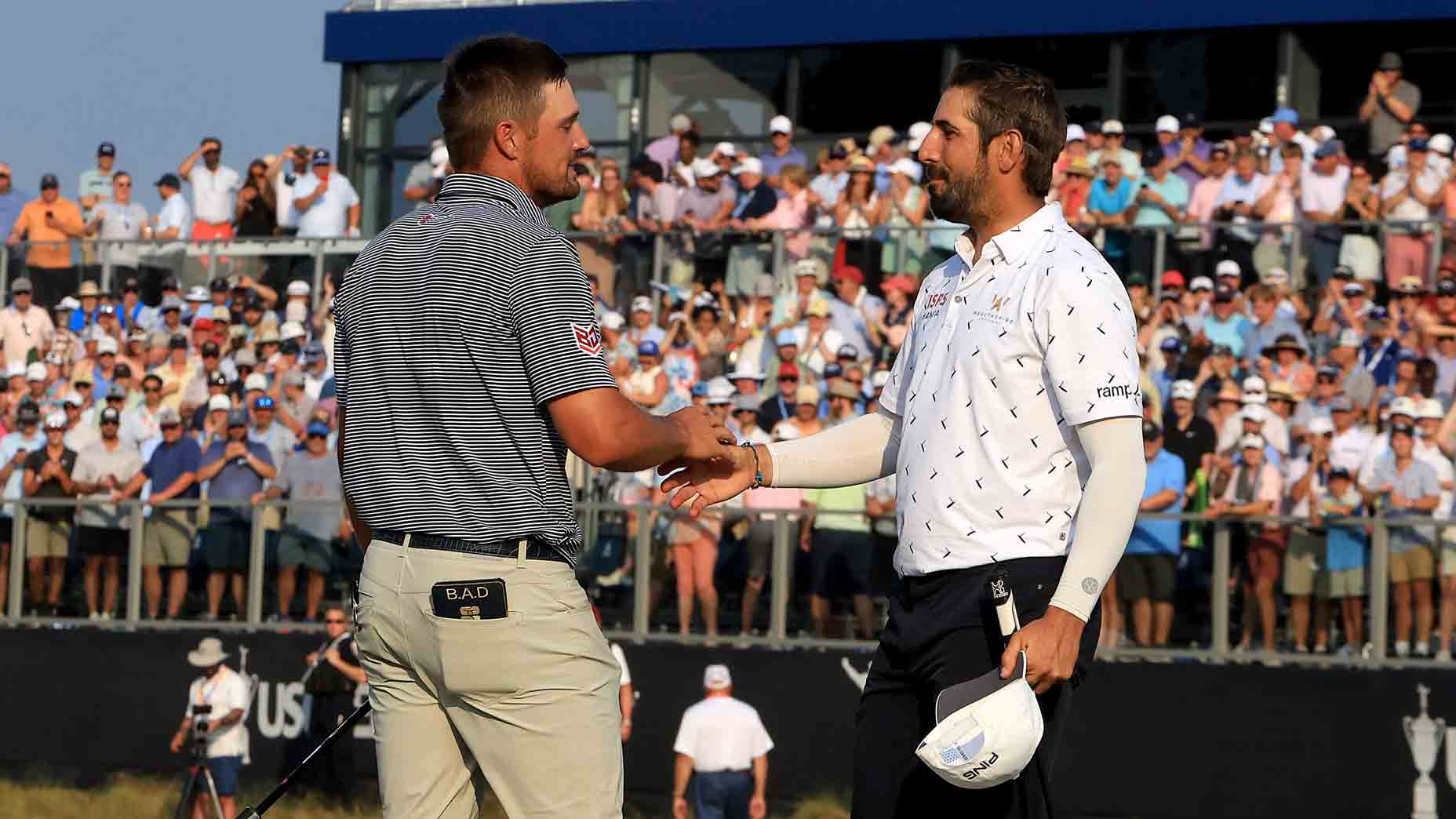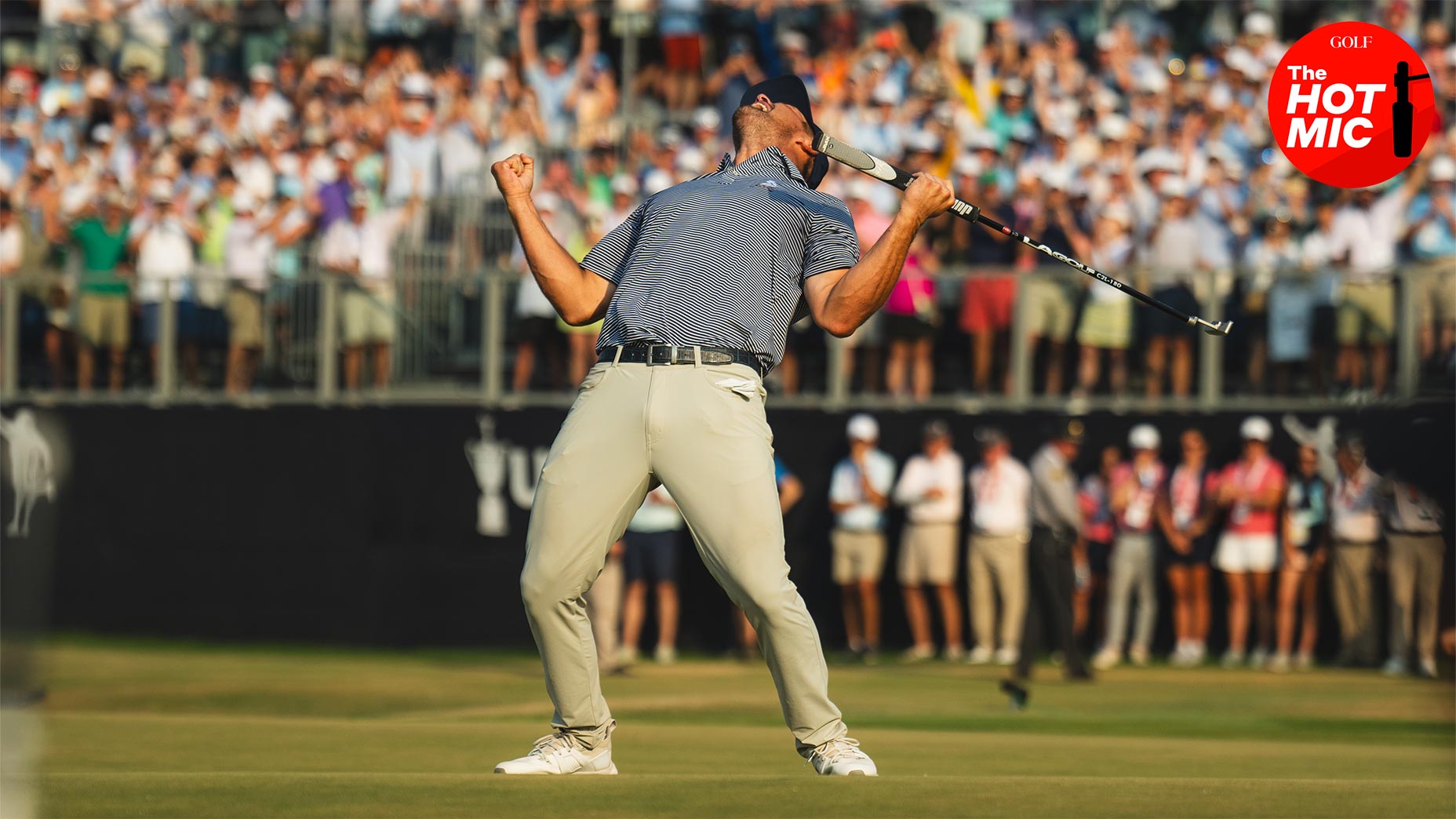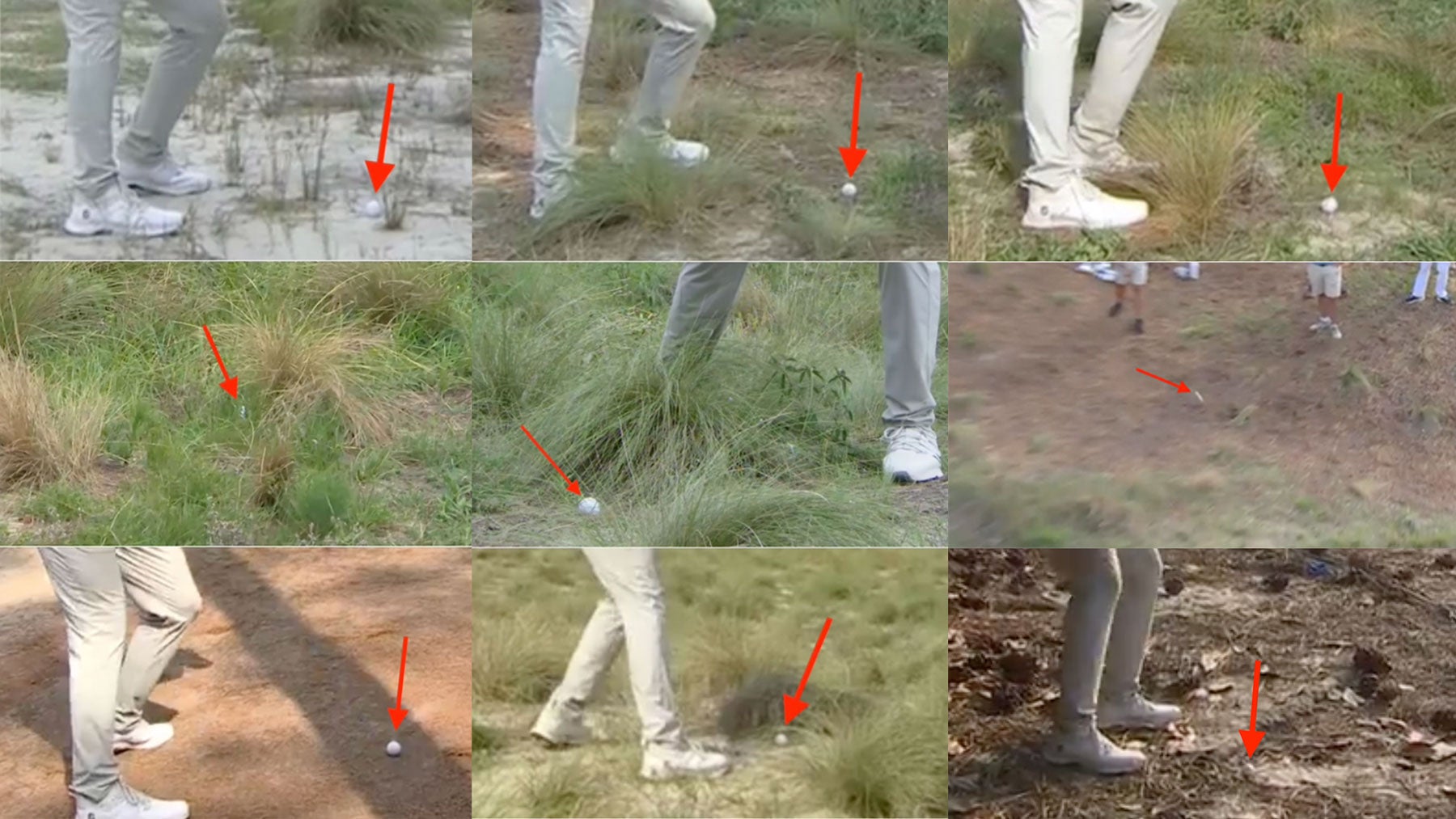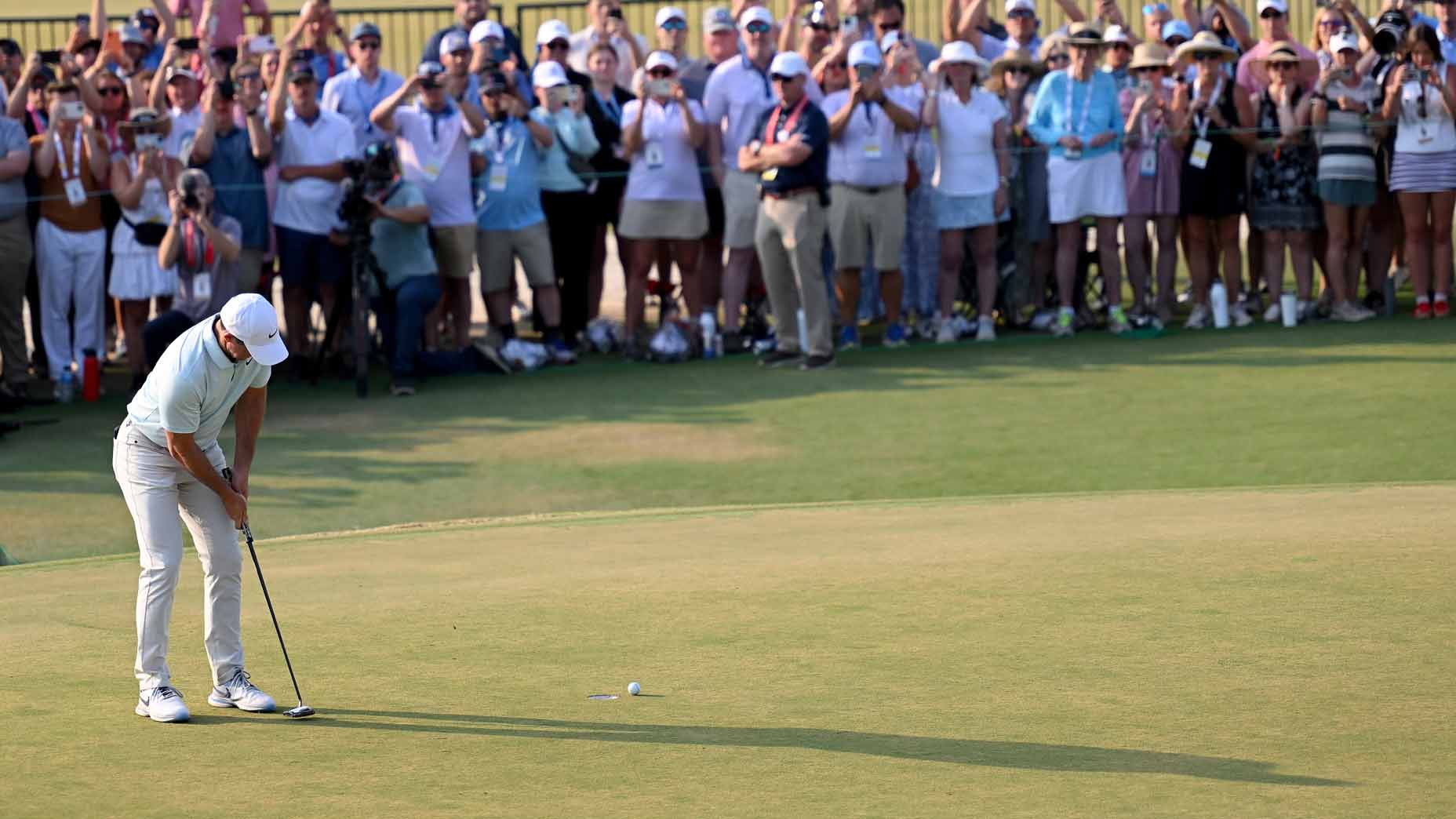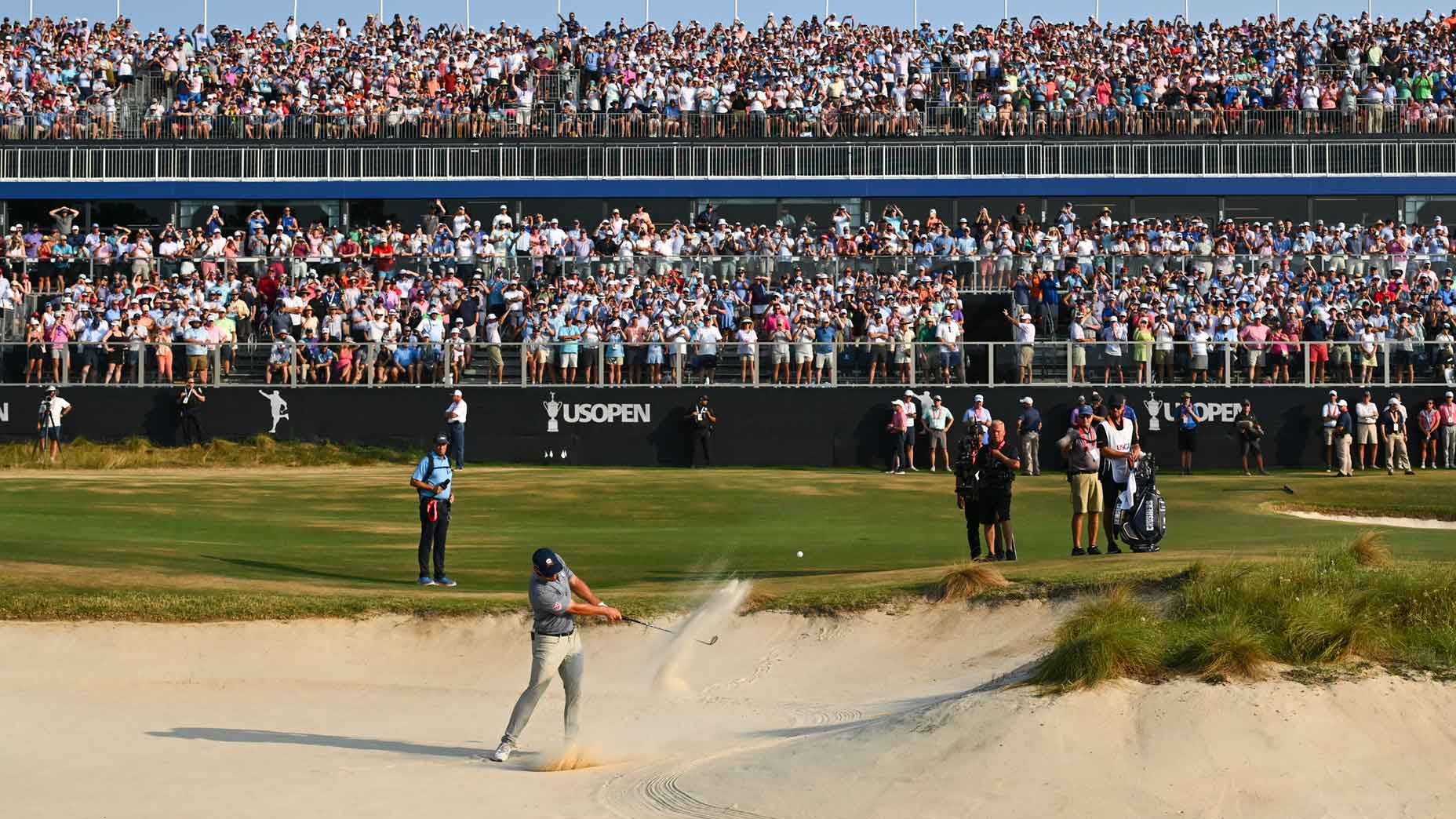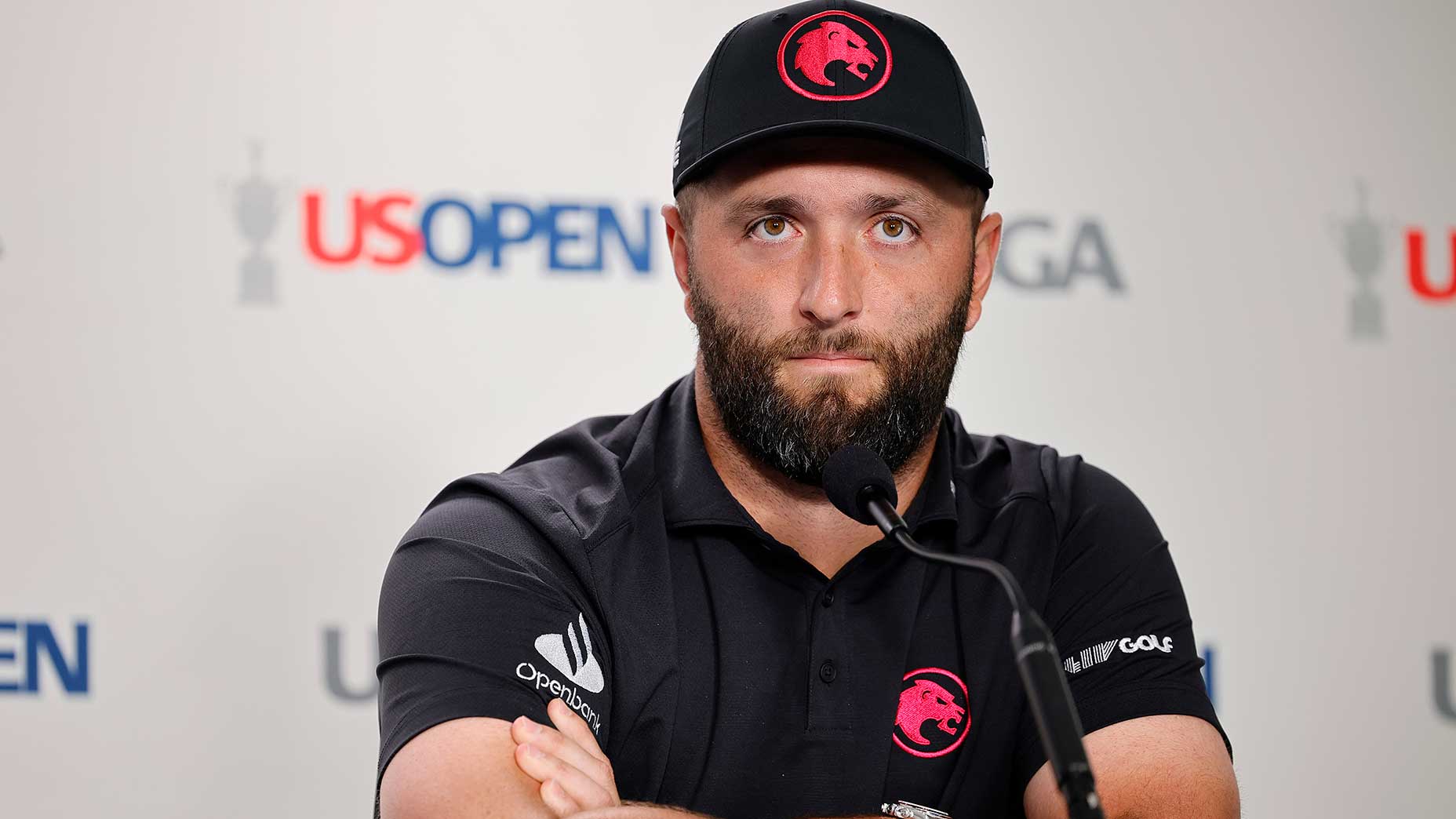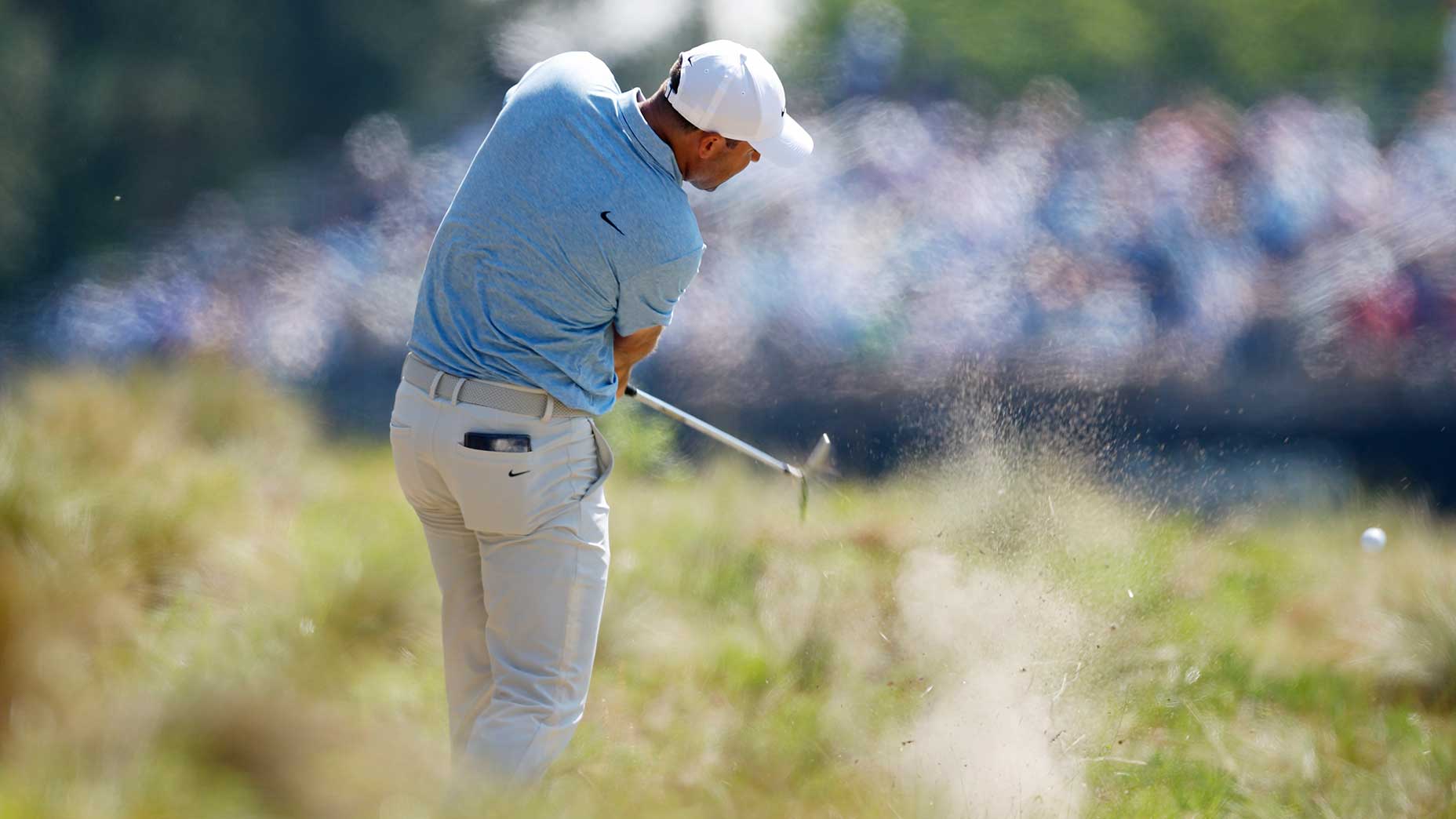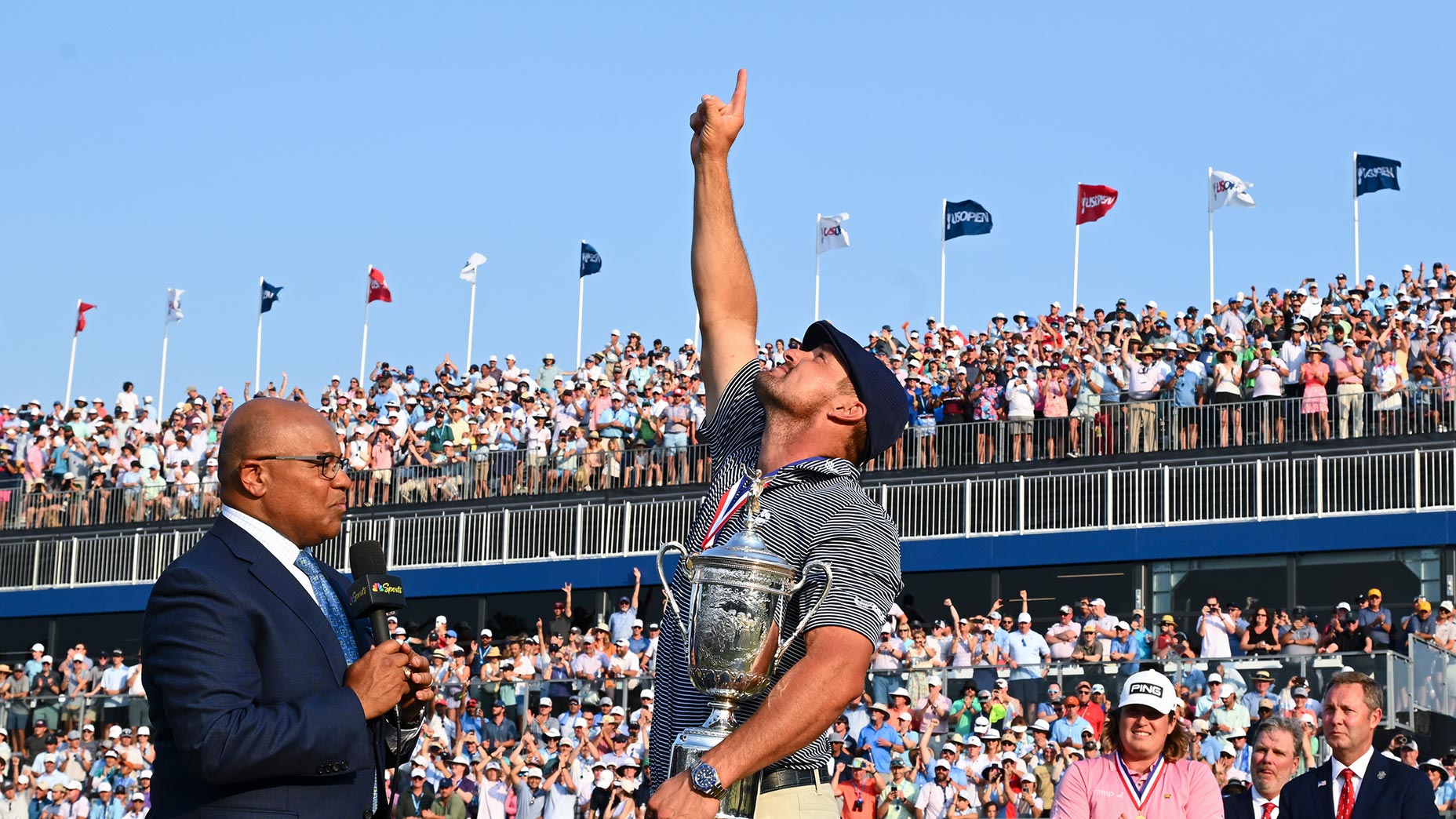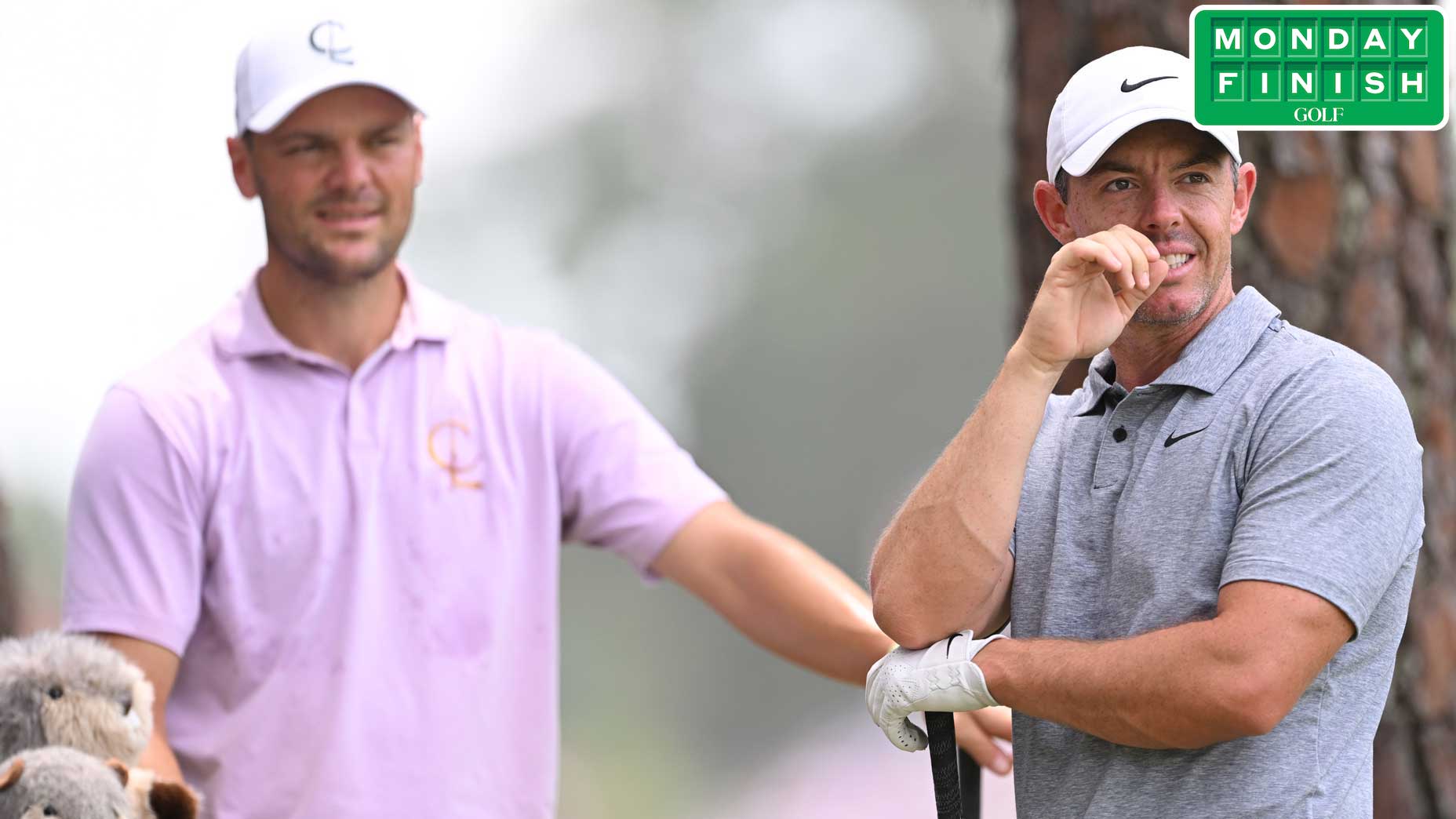After U.S. Open commercial outrage, NBC and USGA slash commercial breaks
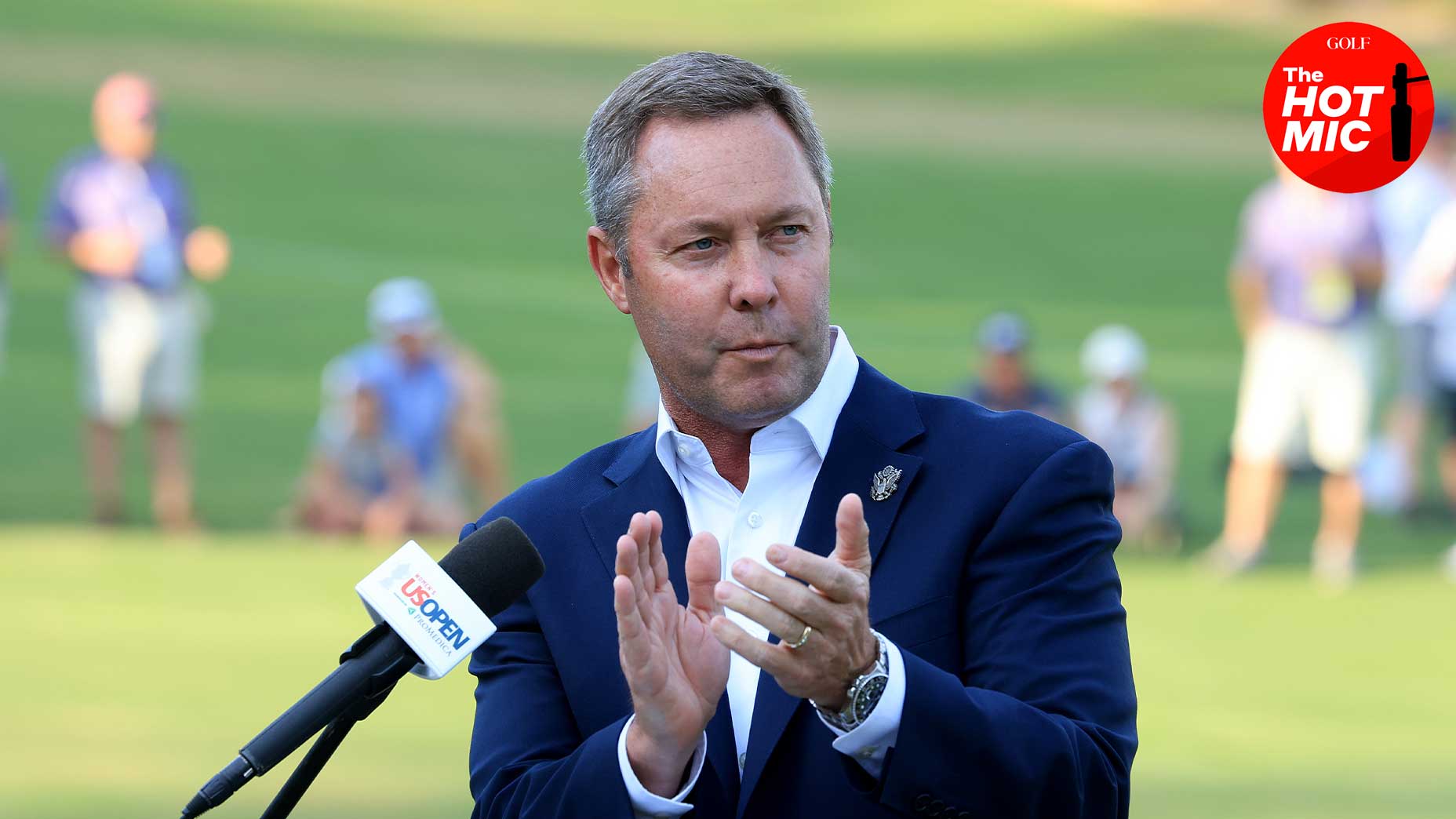
USGA CEO Mike Whan announced a "30 percent reduction in commercial interruptions" on the U.S. Open's weekend NBC coverage Wednesday.
Getty Images
LOS ANGELES — One year ago, Mike Whan poked a golf Twitter landmine with an olive branch.
It was Saturday at the U.S. Open at The Country Club, and things were not going well for the governing body’s television coverage. Whan, the USGA CEO, had watched his flagship tournament, the U.S. Open, get raked over the coals by golf fans furious about the number of commercials shown by NBC during the third-round coverage.
Before Sunday’s final round at The Country Club began, he’d heard enough. He logged on to Twitter to offer a surprisingly conciliatory note.
“I’m on it!” Whan tweeted. “We have the best sports production team in the world here with our partner NBC Sports (Olympics, Super Bowl, etc.) and if the amount of interruptions are problematic, we will work with our partner to do better!”
On that Sunday in Boston, Whan later confirmed, the USGA and NBC worked together to limit the number of interruptions during the final round — a massive (and unprecedented) effort to improve the TV product overnight.
“When you’re here all day and you’re in meetings all day and everything else, sometimes you don’t really understand the fan experience until midnight and reading social media,” Whan said later. “I shouldn’t admit that because I can only imagine the amount of crazies that will come out this week.”
But that was only the beginning of the work. The effort to improve the U.S. Open TV experience would continue between both the governing body and network well into 2023. And now, as the golf world turns its attention to Los Angeles for a primetime U.S. Open, both parties are ready for fans to bear the fruits of their labor: more golf.
At his annual U.S. Open pre-tournament press conference, Whan announced this year’s weekend coverage on NBC would feature “30 percent fewer commercial interruptions,” a landmark agreement aimed at bringing more live golf to fans during 21 hours of live coverage over the tournament’s final two days.
“We’ll break away from the action 30 percent less than we were doing a year ago,” Whan said. “[Last year’s final round] made a difference both in terms of viewing, and we faced some real choices to reduce, and we have.”
NBC’s 2023 U.S. Open weekend coverage will feature some 19 fewer commercial breaks than last year’s tournament, a source from NBC told GOLF, a figure that represents close to an hour of added on-air time between the two days. Those tweaks come in addition to a beefed-up broadcast schedule for this year’s national championship, which will have the most hours of coverage ever on NBC.
The new agreement between the two sides was tested in earnest last year, multiple people with knowledge of the situation said. The playbook that will be utilized this year looks similar to the one used during last year’s U.S. Open final-round broadcast.
“We were aware of the feedback last year, too. We didn’t need Mike’s tweet, you know, to notice some of the commentary going on,” said John Podany, the USGA’s chief commercial officer. “I was having conversations with NBC, talking about it already. We both felt like it was an issue that needs to be addressed.”
It’s important to note that while this year’s U.S. Open will feature fewer commercial interruptions, it will not result in fewer advertising dollars for NBC. The nature of the network’s broadcast rights agreement with the USGA is such that NBC has to sell a certain amount of ads in order to make up the rights fee it pays to the USGA. The NBC/USGA agreement, believed to be worth close to $100 million annually, remains unchanged in 2023.
But before the cynics get too far ahead of themselves: the two parties won’t be replacing commercials with more “Playing Throughs,” and will truly be limiting the number of commercial interruptions during play, the same source indicated. Playing Throughs will represent some 40 percent of the overall commercial burden this week for NBC, a number consistent with last year, and the network has not added more commercials to its U.S. Open coverage at any time as a result of Playing Through.
But even if the first changes did come overnight, the decision to overhaul the broadcast structure took months of planning from representatives for both sides. Both parties contributed the effort, sources from both sides said, by agreeing to make strategic programming cuts — axing promos and other pre-taped segments, among other cuts.
“I’m proud of NBC,” Whan said. “They’ve really cut back on some of their in-broadcast programming. So have we at a similar level. They’ve got bills to pay and so do we, so I get that.”
In addition to those changes, NBC was able to entice corporate partners American Express and Deloitte to sponsor rail and bunker cams, easing some of the network’s commercial burden. While on the USGA side, Podany encouraged a philosophical shift in the U.S. Open commercial structure that grants more latitude to NBC lead producer Tommy Roy to ensure important moments are aired live.
“There was a change to emphasize a greater number of shorter breaks instead of fewer number of longer breaks,” Podany said, marking a reversal from the USGA’s prior preference. “We collectively felt like the idea of coming back and only seeing a few golf shots, and then breaking again, wasn’t what was best for the fans.”
Of course, these changes won’t remove commercials from NBC’s U.S. Open coverage altogether, and they certainly won’t make the U.S. Open feel more like the Masters, which is not bound by the same financial constraints as the USGA. Simply put: Augusta National does not need to worry about TV dollars funding its tournament and golf-related aspirations; the USGA does.
It’s likely the first two days of tournament coverage, which are not changed by this new agreement, will feel slow. But with some 20 hours of cable-and-network airtime between USA and NBC on those days, commercials are the tradeoff for the most hours of live golf of any tournament this year by a wide margin. (Peacock’s exclusive early morning streaming coverage, on the other hand, will run with limited commercial interruption.)
“There will still be millions of people that don’t like the commercial interruptions because no matter how low you get it you’ll get that feedback,” Whan said. “But yeah, we made an effort between both of us.”
With massive audiences expected to tune in at primetime on the weekend, though, there’s reason to believe NBC’s tournament broadcast will feel markedly smoother than in years past. That’s a big deal — not to some network suit or USGA spokesperson — to you.
“I think if you run a major like we do, we have a responsibility to make everything feel better,” Whan said. “I don’t think that’s going to stop the Twitter conversation, but I’m really proud of what’s happened.”
You can now resume tweeting into the void.

